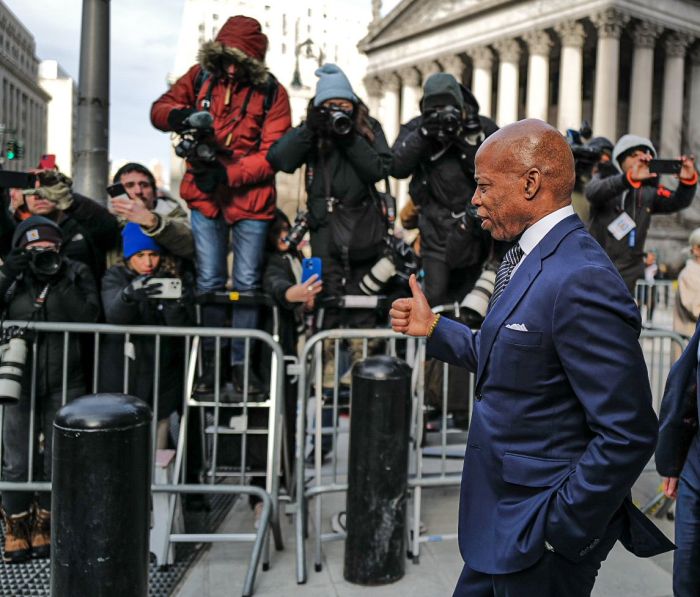State lawmakers failed to vote on legislation, known as the HALT bill, that would have restricted solitary confinement in prisons and jails before the legislative session ended Thursday.
The decision not to move forward with the legislation, sponsored by Sen. Luis R. Sepúlveda (D-Bronx) and Assemb. Jeffrion L. Aubry (D-Queens), was announced after Gov. Andrew Cuomo and legislative leaders agreed on a deal to implement some changes administratively instead.
"These new steps build on this year’s landmark reforms and will further help to correct inequities and end inhumane practices in our criminal justice system," Cuomo said in a statement Friday. "Together we will continue to work on this issue, fight to move this state forward and create a stronger, fairer and more just New York for all."
Advocates who supported the original HALT legislation, including several people who staged a hunger strike, were outraged over the deal, calling it an "appalling act of cowardice."
Learn more below about the deal.
What’s in the agreement to reduce solitary confinement?
The following changes will be implemented via Cuomo’s administration:
- Minors, pregnant women and disabled inmates will no longer be put in solitary confinement.
- Tighter rules will be put in place to ensure that only those who commit serious misconduct that creates a significant risk to the safety and security of inmates and correctional facility staff can be placed in solitary confinement.
- The length of time an inmate can be left in solitary confinement will be capped at 30 days.
- Departments of correction will need to expand the use of specialized units where inmates being released from solitary confinement can receive treatment and rehabilitation programming before they are reintegrated with the general prison or jail population. Staff in these units will need to undergo additional training on de-escalation techniques, implicit bias, trauma-informed care, and dispute resolution.
- Inmates in the specialized transition units will be able to earn early release into the general population by completing rehabilitation programming earlier than they are expected to, and any loss of good time will be restored to those who successfully complete their rehabilitation program.
- Departments of correction will be prohibited from imposing restricted diets or any other changes in diet as punishment. Inmates also cannot be denied essential services as a form of discipline.
What was in the HALT bill?
The Humane Alternatives to Long-Term Solitary Confinement Act would have limited a prisoner’s time in solitary confinement to 15 consecutive days. An alternative rehabilitative unit, where prisoners would have been allowed a fixed amount of time out of their cells or units, would be provided for any period thereafter.
It also would have capped the total number of days a prisoner can spend in isolation at 20 for every 60-day period.
Certain practices would have been banned as well, such as the isolation of pregnant women, the mentally or physically disabled, and inmates 21 years old or younger. Other groups would have received protections, like new mothers and those ages 55 and above.
What was the opposition to the HALT bill?
Cuomo has said that while the cost of alternative rehabilitation units in state facilities was included in the budget, there was no funding to implement the same mandate in local jails across the state, as the bill would have required.
"If we impose it on jails, that would be one of the largest unfunded mandates in history. Where does the money come from?" he said on Friday during a briefing on the end of the legislative session.
The bill also drew criticism from the Correction Officers’ Benevolent Association, which represents 18,000 active and retired correction officers who’ve served in jails around New York City, including Rikers Island. COBA president Elias Husamudeen issued a statement on Monday against the bill, saying the practices would “surely” increase assaults against officers and other inmates.



































